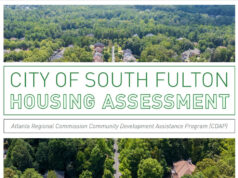Many renters get a roommate more out of necessity than the desire for at-home company. In some cities, like Manhattan and San Francisco, living alone is prohibitively expensive (the latter’s average monthly rent is a whopping $3,629, and the average apartment size is 747 square feet). In cities like these, getting a roommate means not having to cram into a depressing studio apartment the size of a shoebox.
But thanks to the coronavirus pandemic, renters’ attitudes on roommates could change in a meaningful way. And income property owners should try to capitalize on that.
Will more renters want roommates post-pandemic?
Living alone is often touted as a good thing — but that was before the pandemic started. For the past seven months, people who live alone have experienced extreme isolation, especially in light of the number of companies that have shifted to fully remote work and have no plans to bring staff back to office buildings anytime soon. As such, once the pandemic is over and the concept of sharing a living space with someone else becomes safer, we may see an uptick in renters who actively seek out a roommate situation — not due to a financial need per se, but for the company.
This could present a prime opportunity for real estate investors with income properties, as those with larger homes could consider renting out their properties by the room. Doing so can be beneficial for a number of reasons. First, more tenants means less vacancy risk. If a single tenant moves out but two rooms remain occupied, that sudden loss of income will be lessened. Also, landlords can often get away with charging more by the room than by the unit, which means this potential roommate trend could lend to an uptick in revenue.
Income property owners may also want to think about strategically designing their living spaces to encourage roommate living. That could mean opening up common areas or even offering up furnished homes with nice setups in these areas to entice renters to live together.
Will some renters shun roommates post-pandemic?
Of course, just as some renters may be itching for company thanks to the pandemic, for others, the opposite may be true — they’re tired of being stuck at home with a roommate and want nothing more than to live on their own once that becomes feasible. But the people most likely to feel this way may be those in small apartments in cities. For these renters, cost is more likely to be a barrier to ditching the roommate setup.
The bottom line
As such, there’s a good chance roommate living will reign supreme once the pandemic wraps up. Income property owners should therefore make every effort to benefit from this trend — especially those struggling for revenue at present. Many landlords have seen their own income take a hit during the pandemic, so any opportunity to boost it should be jumped on.











